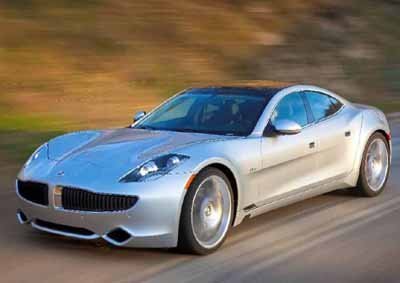Battery Sedan Does 2.1 litres/100km?

The Karma is powered by two rear-mounted 150kW electric motors and a petrol engine driving a 175kW electric generator to power them.
TÜV tests also validated the Karma’s all-electric range at 83km. The Karma can run on all-electric power up to a range of 483 km before a stop for petrol or recharge is required.
CEO and co-founder Henrik Fisker said: “We are naturally very pleased with the TÜV results, which show we have delivered better than our anticipated fuel efficiency figures. We believe the Karma is a car well-suited to the lifestyles of many people in Europe, and these results reinforce that position,” said Fisker.
Presumably taking a cue from James Bond flicks, the Karma featured two drive modes - Stealth and Sport.
The Stealth mode maximises efficiency by using utilising battery power before activating the petrol-driven generator to sustain battery charge. In Stealth mode, the Karma can accelerate from 0-100km in 7.9 seconds and achieve a top speed of 153 km/h.
In sport mode, the petrol engine drives the generator to produce 298kW, allowing the Karma to accelerate from 0 - 100km in 5.9 seconds and achieve a top speed of 201 km/h.
The Fisker Karma is already in production at the Valmet Automotive’s Uusikaupunki facility in Finland.
Fuel economy: Combined cycle
Fuel consumption - 2.1 litres/100km
Electric range - 83 km
CO2 - 51 g/km
Related News


